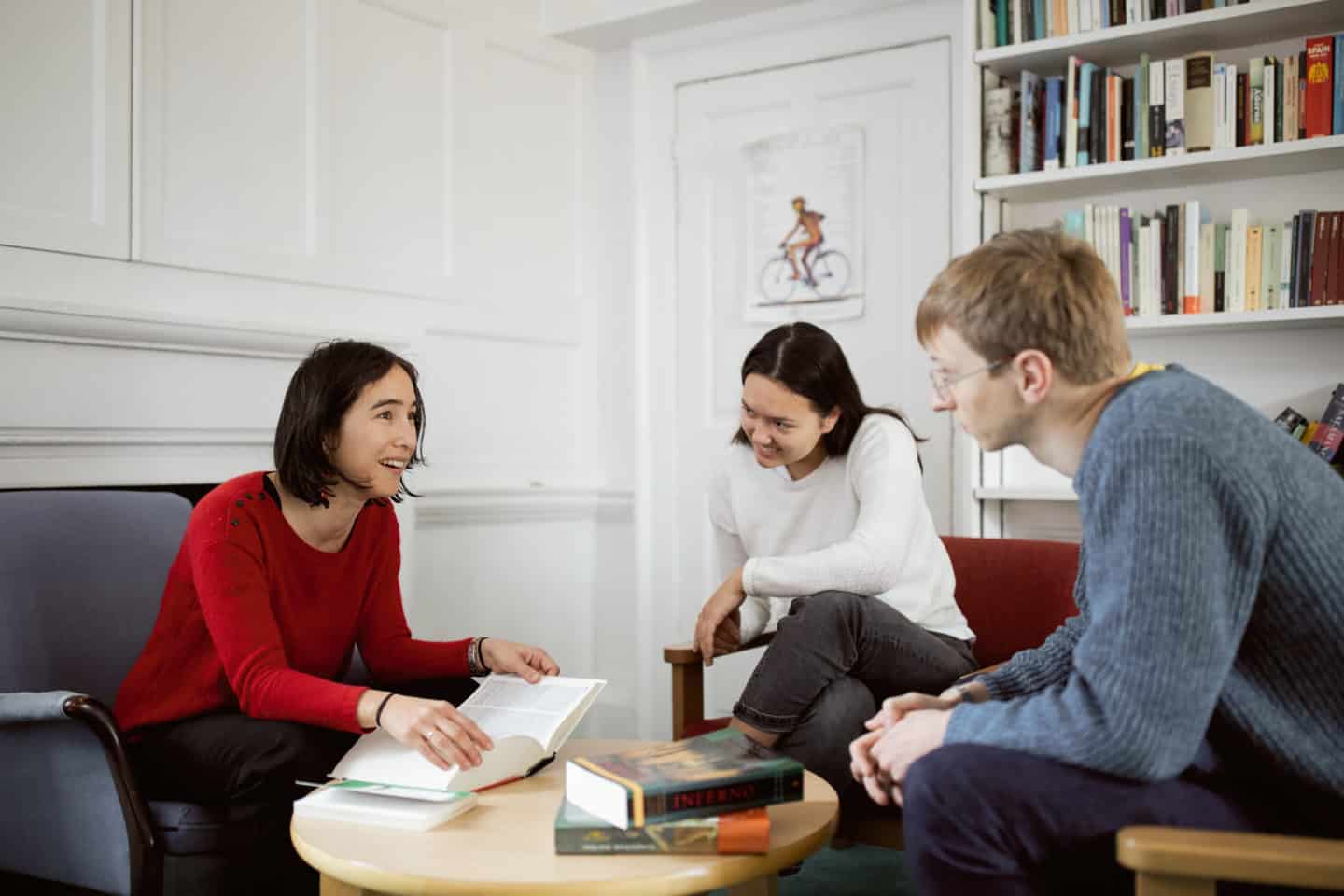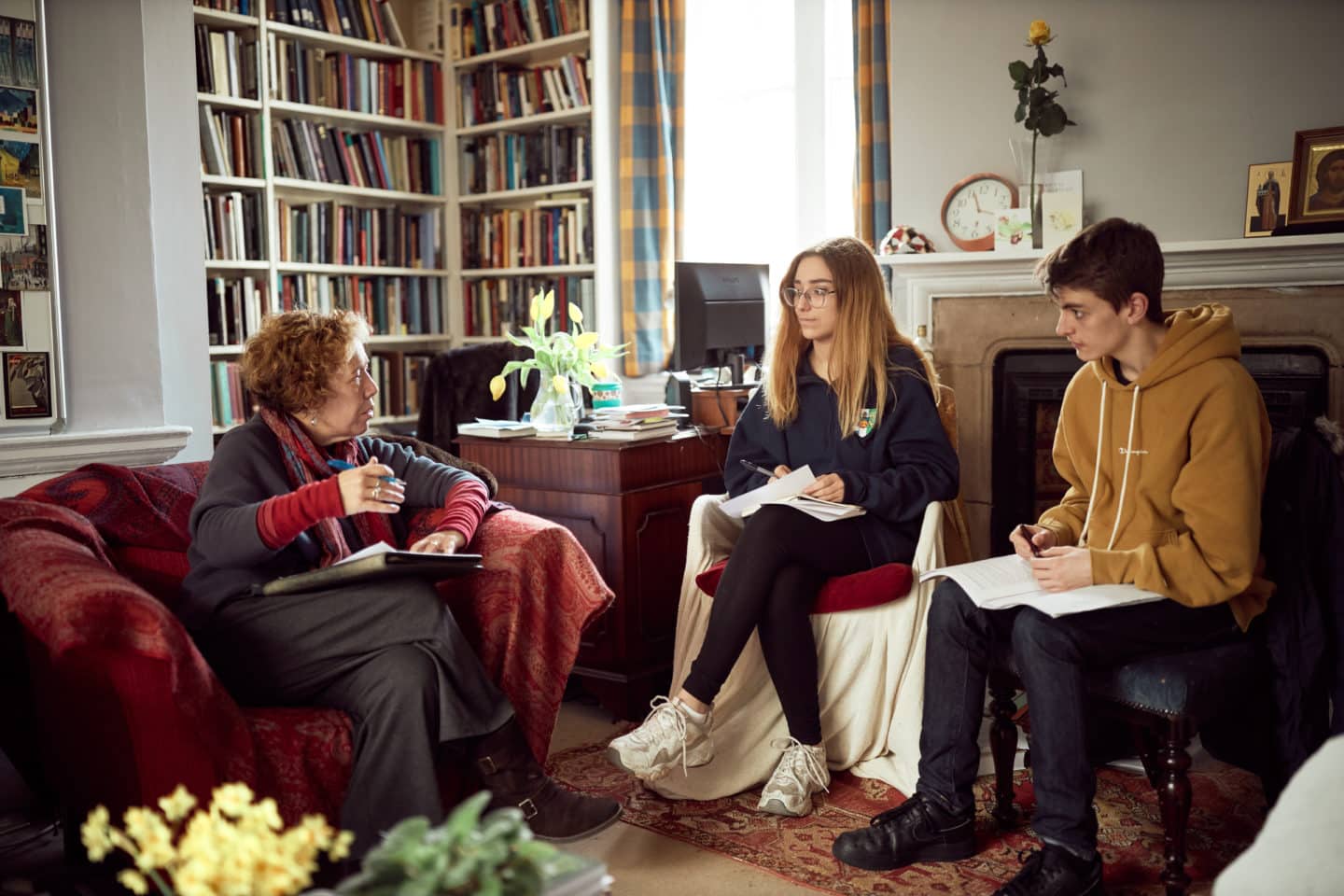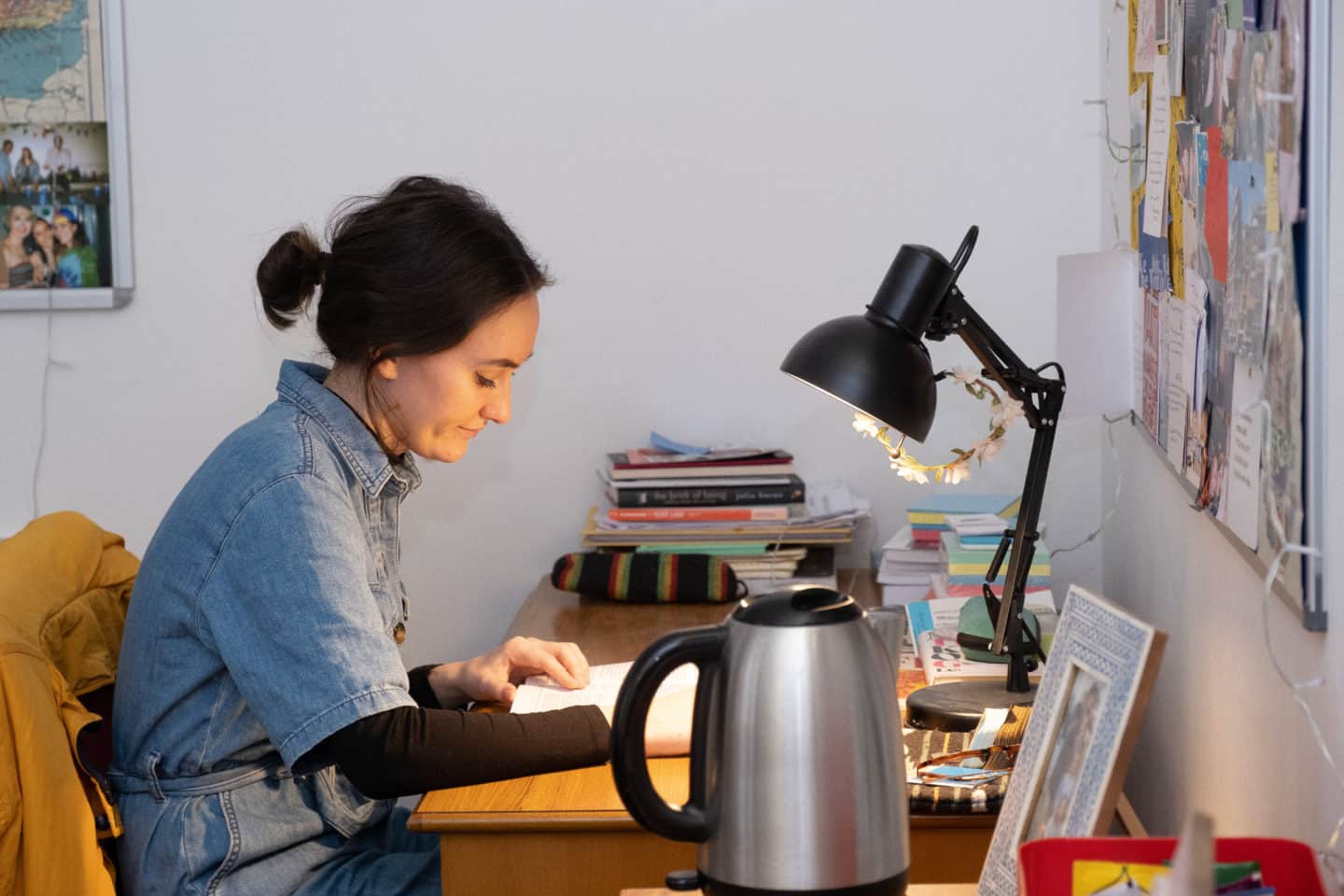Preparing for Interview
Every year at the University of Oxford we shortlist around 10,000 applicants for interview, and with all of those having more than one interview, it soon mounts up! Here at Lincoln College, we interview around 300 applicants in December. We understand that the interview process may seem a little daunting, which is why we have produced this web page to help you get a better understanding of the process.
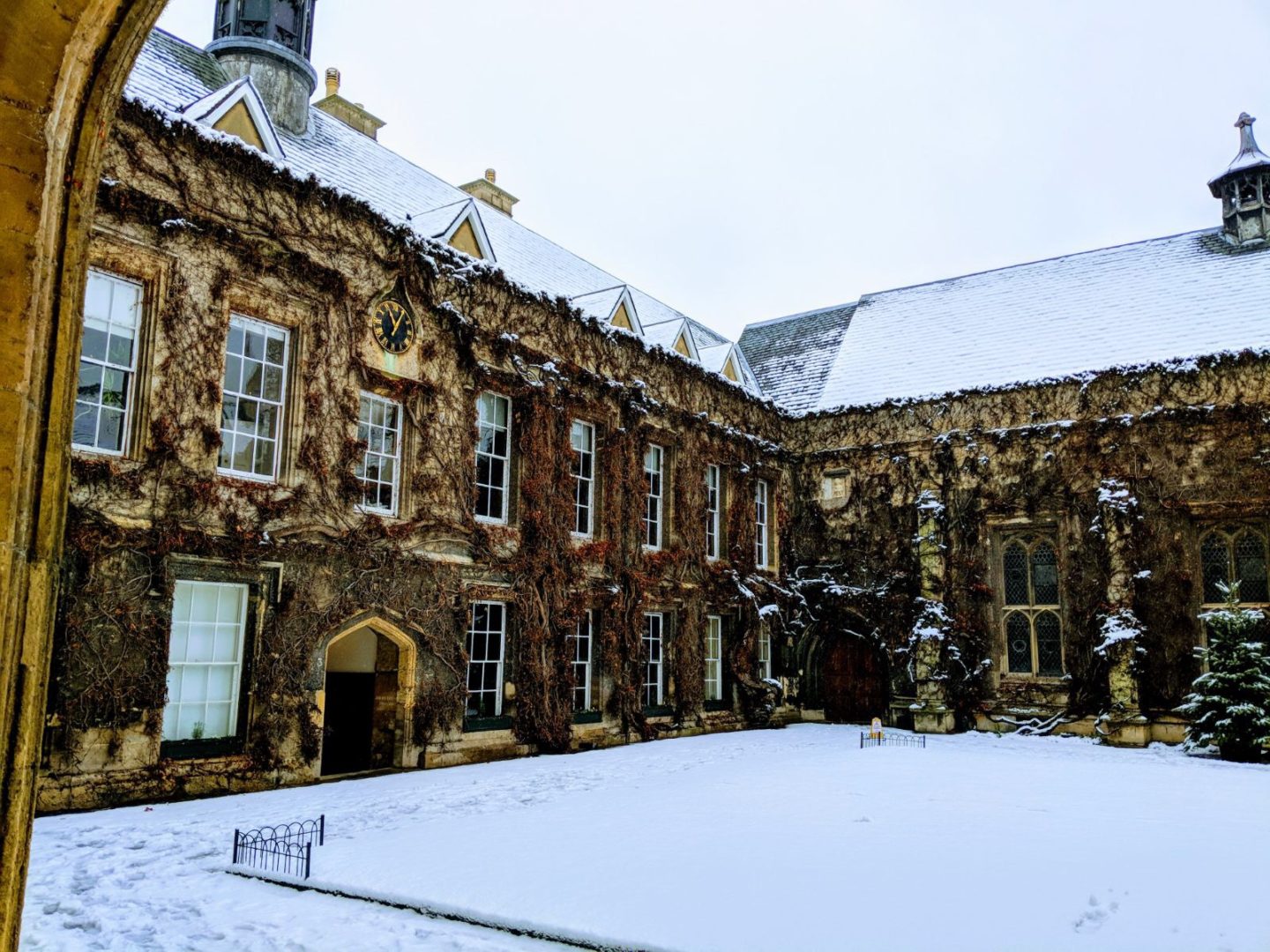
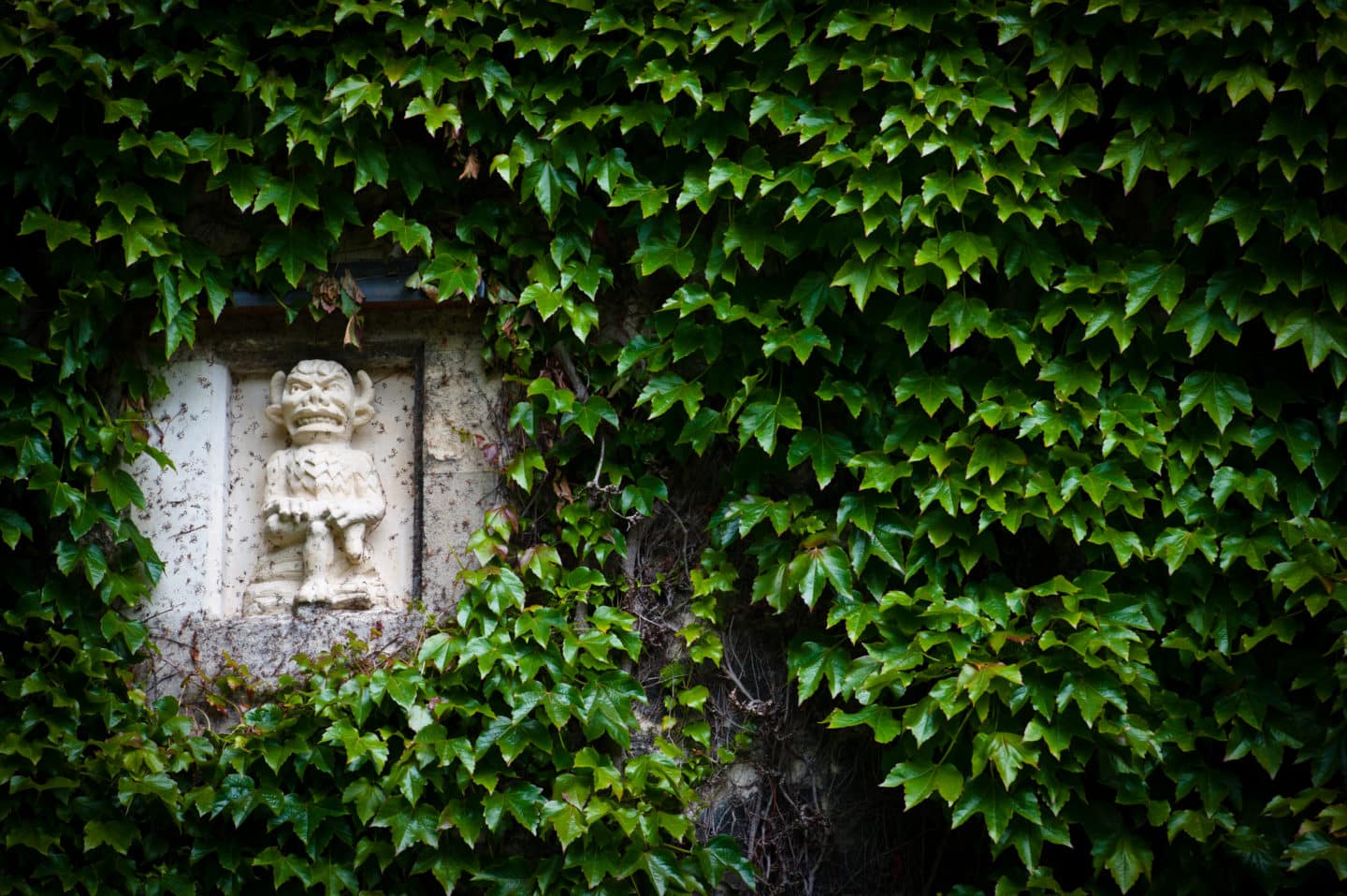
Why we interview
We are different to most other UK universities in that we interview for ALL undergraduate courses. Elsewhere, interviews are a rarity and confined to a handful of subjects. Not at Oxford.
Most applicants to Oxford are very well qualified: they are predicted very good grades, have excellent references, work hard on their personal statements. The interviews give us a chance to go beyond the paperwork, and meet the person behind the application.
Interviews are essentially a mirror of our tutorial system, very small group teaching, that is a system unique to ourselves and Cambridge. A tutorial will be one or two students, an interview will be two tutors and one student. It is a chance for us to see how you cope in that style of teaching, and for you, it’s a chance to sample it and see how you feel about learning in this way.
The interview process is designed to assess your academic abilities and potential not your schooling or any coaching that you may have had beforehand.
What to expect
Interviews are conducted by the colleges. It is the college that wants to interview you that will contact and correspond with you: that college will invite you for interview, schedule your interviews, and conduct your interviews.
Everybody will have, as a minimum, two interviews. That means you get two chances to show that you will thrive academically at Oxford.
If you are nervous in the first one, or feel you performed less well for any reason, you get to have a break and have a chance at a second interview.
Some subjects will automatically schedule you another interview at a second college. This is mainly the science subjects and the reason for doing this is the same principle behind guaranteeing you two interviews, more chances to be fairly assessed. Other subjects will be more ad hoc and offer third interviews at a second college on a case-by-case basis.
Interviews typically last between 25 and 40 minutes and the majority will be around half an hour. They are academic conversations and are subject-specific, focused on the subject that you have applied for. Any questions will be fully relevant to the subject that you have applied for.
It is a chance for us to see how you think through problems, how your brain works, how you respond to new ideas and how you articulate your thinking.
How an interview might go
All interviews are unique and this is not a guarantee that your interview will look like this. However, generally, they begin with a question to help you get started and ease any nerves. This could be something as simple as "why do you want to study this subject?" (hopefully you have given this some thought before now) or something drawn from your personal statement. It is useful to re-read your personal statement before interview.
The interview will then move on to presenting you with new material relevant to your course, to see how you process and engage with it academically. This builds up the academic conversation between the candidate and the tutor.
What we are looking for
We want to give candidates the best opportunity to demonstrate they are going to be strong students in our system.
What we are looking for falls broadly into the following;
Academic ability and potential: we are interested in how well you have done already and your potential to do well in our system. When we engage you in an academic conversation we hope to see that potential come through.
Flexibility of thought and responsiveness: your ability to respond directly to the question that you've been asked, your ability to engage critically with that question, and new information. This may seem “easier said than done” but it is a critical part of the process. We want you to be able to articulate your ideas clearly, be enthusiastic to engage with new ways of thinking, and in ways that are not dogmatic.
What we are not looking for
We are not looking for a smooth performance, or a confident public speaker. We know that you are going to be nervous you have not done much like this before. We will not ask about extracurricular activities, as these are not related to your academic ambitions with us. We will not ask why you selected a particular college - this is not relevant as colleges do not know if you selected them or made an open application, and it is not a factor at all.
What if you make a mistake?
Do not worry if you think you have made a mistake, it is absolutely not the end of the world. Interviews are designed to be challenging, to take you to the edge of what you can do and slightly beyond. Everyone will find them stretching.
We have no hidden agenda, we are not here to trip you up or catch you out. It is not in our interest to do that; aside from the fact we are nicer people than that, we would not get a chance to learn anything about your academic ability or potential if we were trying to trick you. We want to see you at your best, and every interviewing tutor wants every candidate to do well.
Our tutors will not leave you to flounder or pursue unworkable tangents. If you are responsive to new information then that is fine. It is only a problem if you refuse to engage with new information, or you panic and freeze. We certainly do not expect you to know all of the answers, but we are interested in seeing how you might work out an answer you do not know.
Additionally, you are perfectly entitled to ask for clarification. If there is a word or term that you are not sure about, it is fine to ask for more information. Even something as simple as not quite hearing the question. It is much better to ask for clarification rather than simply guess.
